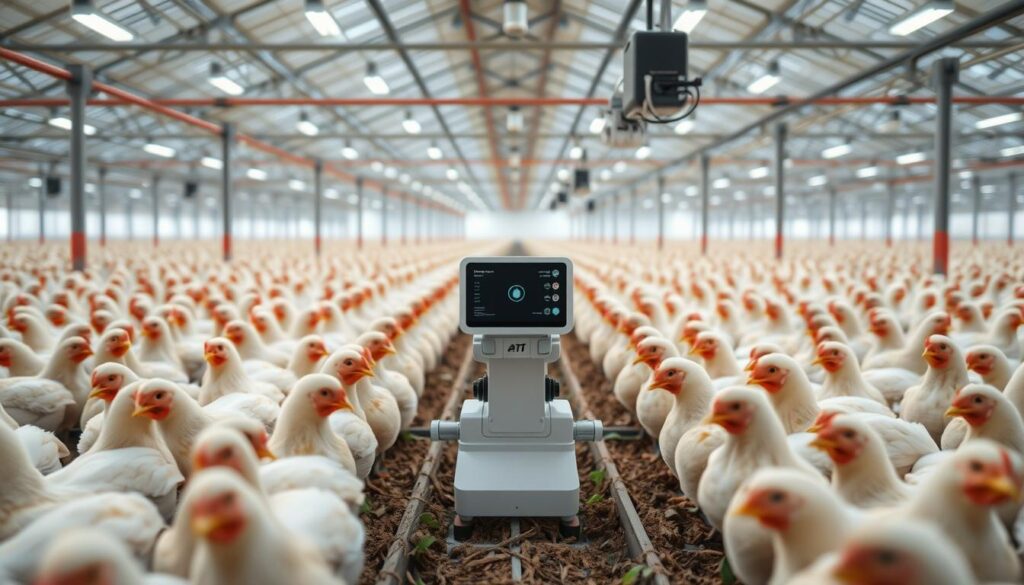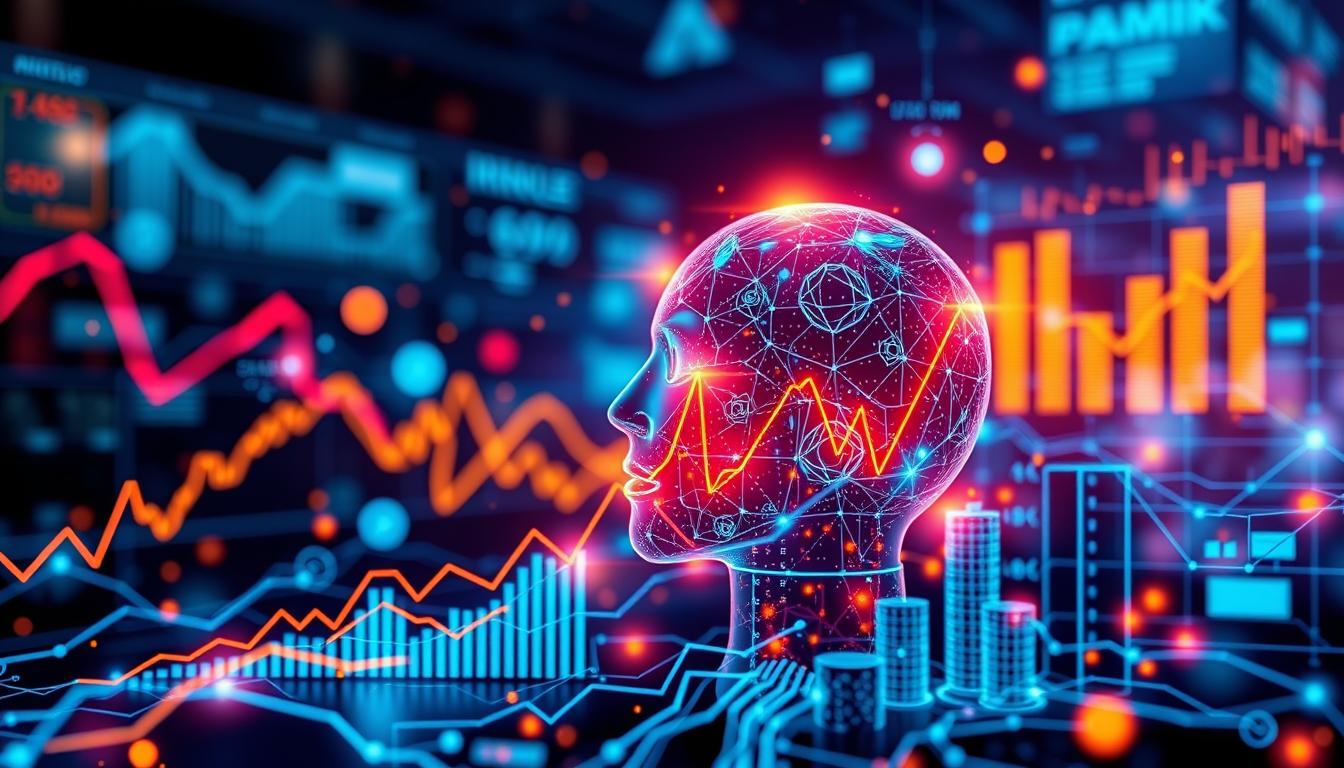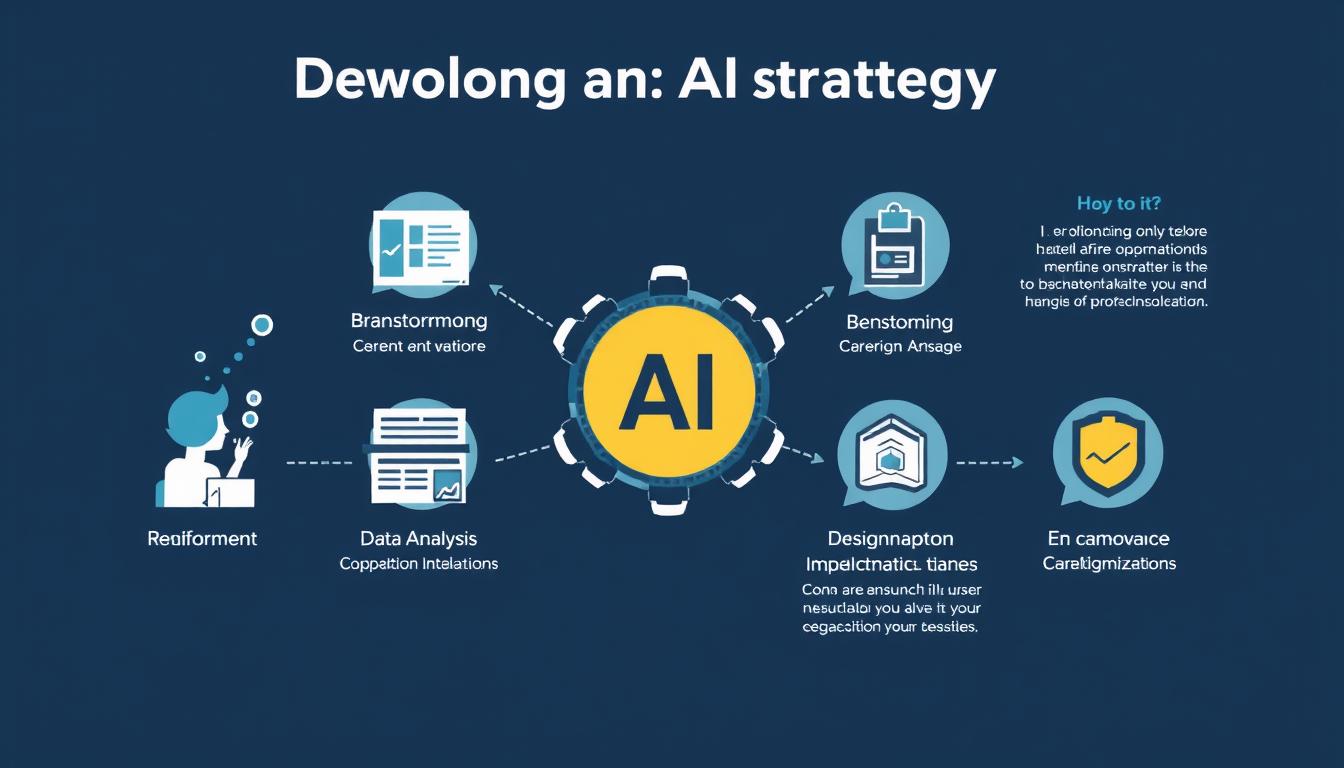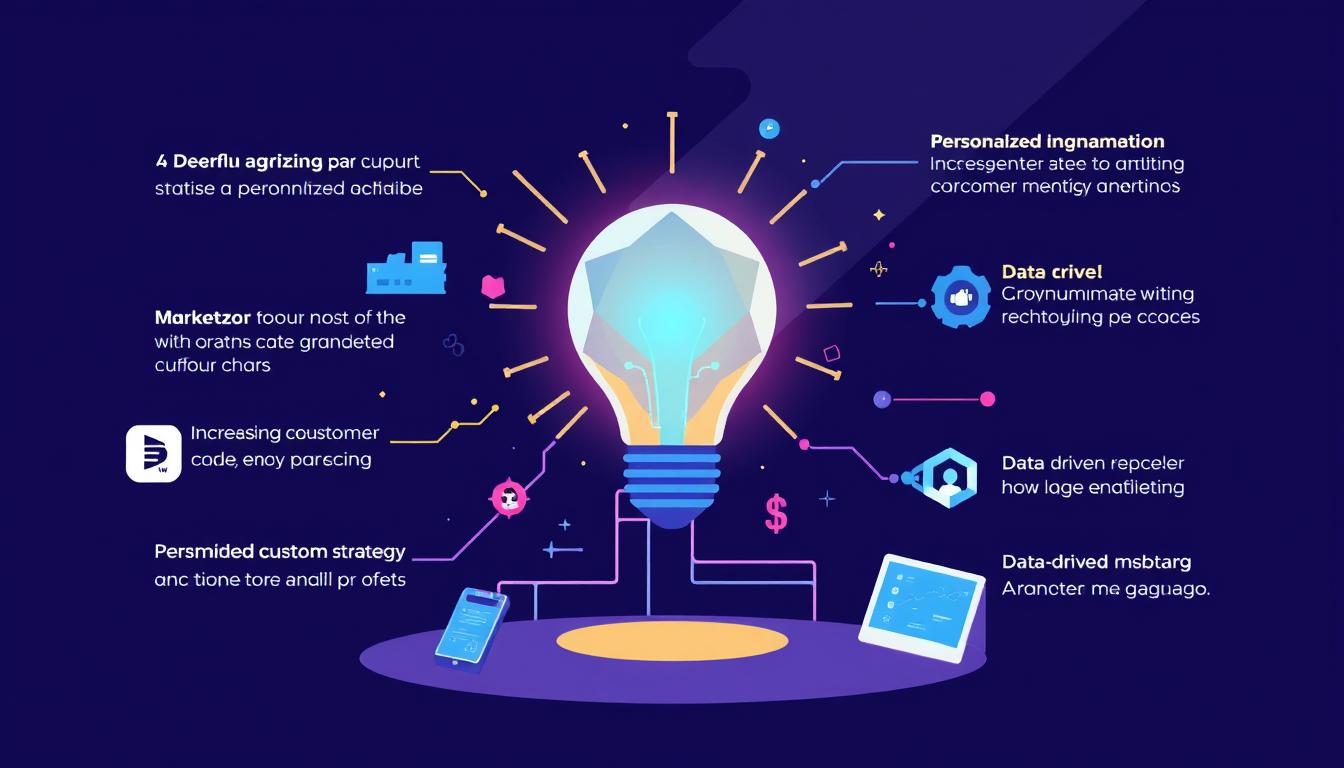The world of technology is rapidly evolving, driven by advancements in artificial intelligence. Recent developments have transformed various sectors, from education and technology to agriculture, housing, and creative industries.
Groundbreaking innovations from leading research institutions and tech companies are pushing the boundaries of what intelligence can accomplish. As we explore these advancements, it’s crucial to analyze their economic, ethical, and regulatory implications.
This compilation of news and trends provides insights into current implementations and future directions, helping readers understand the evolving landscape of this transformative technology.
Key Takeaways
- Significant advancements in artificial intelligence are transforming various industries.
- Innovations from leading tech companies are pushing the boundaries of AI capabilities.
- The impact of AI on sectors such as education, technology, and agriculture is substantial.
- Economic, ethical, and regulatory implications of AI advancements are being closely analyzed.
- Understanding current and future AI trends is crucial for navigating this evolving landscape.
The Current State of AI Innovation
The artificial intelligence sector is witnessing rapid expansion. Major tech companies are investing heavily in research and development, driving innovation forward. This growth is manifested in several key areas:
- Generative AI is transforming creative workflows with sophisticated text, image, and video creation capabilities.
- Edge computing is bringing intelligence directly to devices, reducing latency and enabling new IoT and mobile applications.
As a result, companies are leveraging artificial intelligence to enhance their operations. The democratization of AI tools is accelerating, allowing smaller entities to implement sophisticated solutions.
University of Essex Positions Itself at the Forefront of AI Revolution
The University of Essex is making significant strides in artificial intelligence under the leadership of Professor Maria Fasli. With a strong focus on innovation and ethical development, the university is poised to become a leader in AI research and education.
Prof Maria Fasli’s Vision for AI Growth
Professor Fasli emphasizes the importance of ethical AI development alongside technical innovation. Her vision includes creating an ecosystem that fosters interdisciplinary collaboration between computer science, ethics, business, and other departments.
University Initiatives and Partnerships
The University of Essex is expanding its AI curriculum to prepare students for the growing demand for skilled professionals. This includes implementing advanced learning methodologies that combine theoretical knowledge with practical applications in real-world scenarios.
The university’s initiatives include:
- Expanding AI curriculum to meet industry demands
- Establishing collaborative research initiatives to tackle complex data challenges
- Developing innovative AI solutions with industry relevance
| Initiative | Description | Impact |
|---|---|---|
| AI Curriculum Expansion | Preparing students for the growing demand for AI professionals | Increased employability |
| Collaborative Research | Tackling complex data challenges through interdisciplinary collaboration | Innovative AI solutions |
| Industry Partnerships | Developing AI solutions with industry relevance | Enhanced industry readiness |
OpenAI’s Surprising Interest in Acquiring Google Chrome
In a surprising move, OpenAI has expressed interest in acquiring Google Chrome, potentially reshaping the tech landscape. An OpenAI executive told a US judge the company would be interested in buying the popular browser.
- OpenAI’s expressed interest in acquiring Google Chrome represents a potentially seismic shift in the tech landscape, signaling the company’s ambitions beyond AI development.
- This unexpected move could dramatically reshape how artificial intelligence is integrated into everyday browsing experiences for billions of users worldwide.
- The acquisition would give OpenAI direct access to vast amounts of user data and browsing patterns, raising significant questions about privacy and data usage.
- Regulatory bodies, including a US judge overseeing related proceedings, are likely to scrutinize this potential deal with unprecedented intensity given the market dominance of both entities.
- The combination of OpenAI’s intelligence capabilities with Chrome’s massive user base could create new competitive challenges for other browser companies and tech platforms.
Potential Implications for the Tech Industry
The potential acquisition could lead to significant changes in how AI is integrated into browsing experiences, potentially setting a new standard for the industry.
Regulatory Concerns and Challenges
Regulatory bodies are expected to closely examine the deal, given the market dominance of both OpenAI and Google Chrome, potentially leading to intense scrutiny and challenges.
Academy Awards Opens Doors to AI-Generated Films

In a significant move, the Academy of Motion Picture Arts and Sciences has opened the door to AI-generated films in the Oscars. This decision marks a significant shift in how the industry views artificial intelligence in filmmaking.
Human Involvement Requirements
The Academy has established specific guidelines regarding the degree of human involvement required for eligibility. This ensures that AI serves as a tool rather than replacing human creativity entirely. The Academy will still consider human involvement when selecting winners.
Filmmaker Reactions
Established filmmakers have expressed mixed reactions to the new policy. While some are embracing the technological possibilities, others worry about the potential devaluation of traditional filmmaking crafts. The decision raises questions about authorship and the evolving relationship between human artists and AI models.
The impact of this decision on the film industry remains to be seen, but it is clear that intelligence technologies are playing a growing role in creative processes.
Agricultural Innovation: AI Technology for Egg Farms Receives £2.6m Funding
A new era for egg farms begins with the introduction of AI technology, bolstered by a £2.6 million government grant.

This revolutionary artificial intelligence technology is set to transform the egg farming industry by continuously monitoring hen health and welfare.
How the Technology Works
The AI system utilizes advanced computer vision and behavioral analysis algorithms to monitor hen behavior.
Expected Benefits for Farmers
By processing vast amounts of data in real-time, the technology detects subtle changes in hen behavior, enabling farmers to intervene promptly.
Farmers can expect significant improvements in production efficiency and enhanced animal welfare outcomes.
The £1bn Cyber Park: Impact on Local Communities

The £1bn Cyber Park adjacent to GCHQ represents a significant milestone in UK cybersecurity. This massive development is expected to bring about substantial changes to the local community.
Economic Benefits and Job Creation
The project is anticipated to create thousands of high-skilled jobs in artificial intelligence, machine learning, and cybersecurity sectors. Economic forecasts suggest increased property values and new business opportunities.
Resident Concerns and Responses
Some residents have expressed concerns about potential traffic congestion and housing affordability challenges as part of the development process. Local authorities are implementing community benefit agreements to address these concerns.
AI in Housing: Student Creates Flatmate-Matching Platform

A 22-year-old student entrepreneur, Daniel Virin, has developed an innovative artificial intelligence platform that matches potential flatmates based on compatibility factors beyond traditional criteria. This addresses a significant pain point in the competitive market.
The system employs sophisticated learning algorithms that analyze personality traits, living habits, schedule preferences, and communication styles to suggest optimal living arrangements.
How the Algorithm Works
The AI considers factors that students might not initially prioritize but that often lead to conflicts, such as cleanliness standards and social preferences.
Early User Experiences
Early adopters report significantly improved living experiences with reduced conflicts and stronger household dynamics.
Urban Planning Revolution: AI Assistance in Housing Development Decisions

A district council is at the forefront of a revolution in urban planning, using AI to inform housing development choices. This innovative approach involves a trial with an AI company to optimize the planning process for 5,400 new homes.
Trial Details
The AI system analyzes complex data sets, including environmental impact, infrastructure requirements, and community needs, to suggest optimal development locations and configurations.
Potential for Wider Implementation
The trial represents a significant shift in applying intelligence technologies to civic challenges. If successful, this artificial intelligence-driven approach could be implemented nationwide, creating more efficient urban planning processes.
Creative Industries Respond: Artists Push Back Against AI-Generated Art

As AI-generated art becomes more prevalent, artists are fighting back against what they see as a threat to their profession. Artists across various disciplines are mounting organized resistance against the proliferation of AI-generated art.
Social Media Campaigns
These creative professionals are leveraging social media to raise awareness about the unique value of human artistic expression and the potential risks associated with AI-generated content. Hashtags like #HumanArtistsUnite and #ProtectCreativeRights are trending among art communities.
Livelihood Concerns
Many artists report that AI tools are being used to replicate their distinctive styles without permission or compensation, threatening their ability to earn a living from their creative work. This has sparked concerns about proper attribution, compensation, and the ethical use of training data in the context of artificial intelligence and the broader media landscape.
TactStyle: The Revolutionary 3D Modeling System You Can Feel
Revolutionizing digital design, TactStyle brings a new dimension to 3D modeling with its ability to replicate tactile sensations. This innovative system, developed by MIT’s Computer Science and Artificial Intelligence Laboratory (CSAIL), enables the creation of 3D models that not only look realistic but also feel realistic.

CSAIL Researchers’ Breakthrough
CSAIL researchers have made a significant breakthrough with TactStyle, a system that uses image prompts to replicate both the visual appearance and tactile properties of 3D models. This technology translates complex information about material properties and texture variations into fully realized models.
Practical Applications
TactStyle has numerous practical applications across various industries. It could revolutionize online shopping by allowing consumers to “feel” products virtually before making a purchase. Additionally, it has medical applications, such as creating accurate tactile models of organs for surgical training and patient education, enhancing understanding through multi-sensory information delivery.
The technology represents a significant advancement for industries like product design, virtual reality, and assistive technologies for visually impaired users who rely on tactile feedback. By processing complex information about material properties and structural characteristics, TactStyle creates models that respond realistically to touch interactions.
Recent AI News Highlights from Around the World
The latest AI news underscores the global nature of innovation, with stories from diverse regions. AI is being developed and applied in various contexts, from research centers to startup companies.
North American Developments
North American intelligence research centers have made significant strides in quantum computing applications for AI. These advancements have the potential to solve complex problems that were previously unsolvable.
European and Asian Innovations
European regulatory frameworks for AI are evolving, with the EU’s AI Act setting standards for responsible development. Meanwhile, Asian tech hubs are pioneering AI-human collaboration in manufacturing, creating hybrid workflows that leverage the strengths of both humans and AI systems. This collaboration is happening in the world of AI development.
| Region | AI Development | Potential Impact |
|---|---|---|
| North America | Quantum computing for AI | Solving complex problems |
| Europe | Regulatory frameworks for AI | Responsible AI development |
| Asia | AI-human collaboration | Enhanced manufacturing efficiency |
How AI is Transforming Various Industries in 2025
As we step into 2025, it’s clear that artificial intelligence is revolutionizing multiple industries at an unprecedented pace. The advancements in AI are not only enhancing existing processes but also creating new opportunities for growth and innovation.
Healthcare Advancements
Healthcare is experiencing a significant transformation through AI applications that enhance diagnostic accuracy. Studies have shown that AI systems now outperform human specialists in detecting certain conditions, leading to better patient outcomes. Predictive analytics powered by intelligence technologies are transforming patient care by identifying high-risk individuals before symptoms appear.
Financial Sector Implementations
Financial institutions have implemented sophisticated AI fraud detection systems, reducing fraudulent transactions by over 60% in recent years. Wealth management companies are leveraging AI to democratize financial advice, providing personalized investment strategies previously available only to high-net-worth clients. Various companies are adopting these technologies to stay competitive.
Ethical Considerations in Recent AI Developments
As artificial intelligence continues to evolve, ethical considerations have become a pressing concern. The integration of AI into various aspects of life has raised significant questions about the implications of these technologies on society.
The use of AI systems has sparked debate, particularly regarding privacy and bias. Privacy advocates are raising concerns about how AI collects, processes, and stores personal data. Facial recognition technologies, for instance, have been criticized for their potential to erode civil liberties and disproportionately impact marginalized communities.
Privacy Concerns
Recent controversies have highlighted the need for adequate safeguards when deploying AI technologies. The lack of transparency in how AI systems handle personal data has become a significant issue. Ensuring that these technologies are developed and used responsibly is crucial.
Bias and Fairness Issues
Researchers have identified persistent bias issues in AI models trained on historical data. These biases can amplify existing societal inequalities, making it essential to address these issues in AI development. In some cases, a judge must determine responsibility when automated systems make consequential decisions affecting individuals’ rights and opportunities.
The ethical development of AI requires addressing complex questions about transparency, explainability, and human oversight. Balancing innovation with regulation is a challenge policymakers face, as overly restrictive approaches may stifle progress, while inadequate oversight can lead to harm.
Government Responses to Rapid AI Advancement
As artificial intelligence continues to advance at a rapid pace, governments worldwide are being forced to respond with innovative policies and regulations. This involves not just understanding the technology but also addressing its societal implications.
US Regulatory Approaches
The US government has taken a multifaceted approach to AI regulation, focusing on both innovation and oversight. Key initiatives include establishing specialized AI task forces within federal agencies to tackle sector-specific challenges, particularly in critical infrastructure and national security. The judicial branch is also playing a crucial role as it navigates novel legal questions arising from AI decision-making cases, requiring judges to apply existing laws to unprecedented technological scenarios.
International Policy Frameworks
Internationally, organizations are working to create harmonized policy frameworks that balance the need for regulatory consistency with respect for diverse cultural and legal traditions around the world. This effort includes promoting public-private partnerships to address complex AI governance challenges, leveraging industry expertise alongside government oversight. Furthermore, democratic governments are prioritizing the alignment of AI development with values such as transparency, accountability, and human rights protections.
What to Expect: Upcoming AI Trends for the Remainder of 2025
As we move through 2025, the landscape of artificial intelligence is poised for significant transformations. Experts predict that the future of AI will be shaped by several key trends.
Predicted Technological Breakthroughs
Significant breakthroughs are expected in AI systems that can reason about causality, potentially transforming decision-making applications. The future of conversational AI looks increasingly sophisticated, with next-generation chatbots handling complex interactions.
Market Forecasts
Market analysts forecast substantial growth in AI implementation across mid-sized businesses. Enterprise chatbots are evolving to become integral workplace assistants, enhancing productivity across departments.
Conclusion: The Evolving Landscape of Artificial Intelligence
The artificial intelligence landscape is transforming at an unprecedented rate. Major tech companies and startups are reshaping our world through AI applications that touch every part of modern life.
Regulatory frameworks are still catching up, with government agencies working to establish guidelines that protect individuals while fostering innovation. As AI continues to evolve, consumer awareness about AI-related scams is crucial.
Comprehensive news reports will be essential for navigating the future of this transformative technology. The stories we tell about AI will shape its development and role in our collective future.









Comments are closed